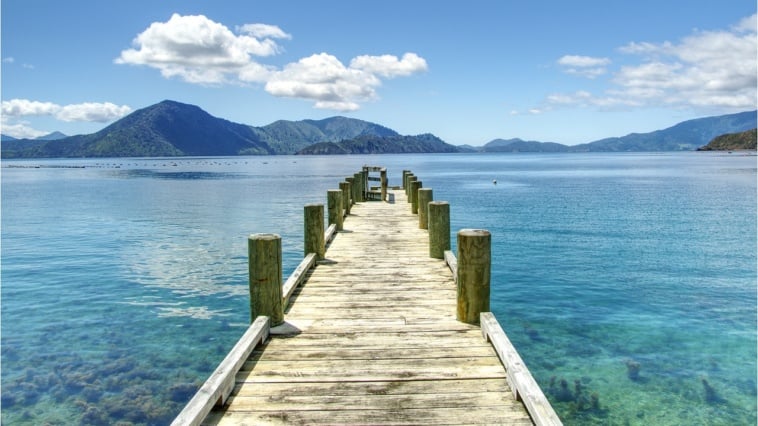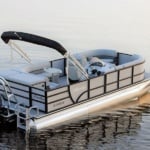Hey there! If you’re planning on renting a pontoon boat for a fun day on the water, you might be wondering if you need to bring your own fuel. Well, the good news is that most pontoon boat rental companies provide a full tank of gas for your excursion. So no need to worry about refueling before hitting the water – just sit back, relax, and enjoy your day out on the lake! Do I Need To Bring My Own Fuel For A Rented Pontoon Boat?
Do you have plans to rent a pontoon boat for a day of fun on the water? One of the biggest questions that comes to mind when renting a watercraft is whether you need to bring your own fuel. Let’s dive into this topic and clarify all the details to ensure you are fully prepared for your pontoon boat adventure.

Fueling Options for Rented Pontoon Boats
When it comes to fueling options for rented pontoon boats, there are typically two scenarios you may encounter:
Option 1: Boat Rental Includes Fuel
In some cases, the pontoon boat rental may include fuel in the package. This means that the rental company will provide a full tank of gas for your outing, and you will not have to worry about refueling during your rental period. This option can be convenient and hassle-free, as you can simply return the boat at the end of your rental time without having to stop at a gas station.
Option 2: Bring Your Own Fuel
Alternatively, you may come across pontoon boat rentals where you are required to bring your own fuel. This means that the rental agreement specifies that the boat will be given to you with a certain amount of gas, and it is your responsibility to refuel the boat as needed during your rental period. This option requires you to plan ahead and make sure you have enough fuel for your day on the water.
How to Determine the Fueling Option
To determine whether you need to bring your own fuel for a rented pontoon boat, it is essential to review the rental agreement provided by the boat rental company. The agreement should clearly outline whether fuel is included in the rental package or if you are responsible for refueling the boat.
If you are unsure or have any questions about the fueling policy, do not hesitate to contact the boat rental company directly. Their staff will be able to provide you with the necessary information and answer any queries you may have regarding fueling options.
Factors to Consider When Bringing Your Own Fuel
If you find yourself in a situation where you need to bring your own fuel for a rented pontoon boat, there are several factors to consider to ensure you have a smooth and enjoyable boating experience:
Determine the Fuel Type
The first step is to determine the type of fuel that the pontoon boat requires. Most pontoon boats run on either gasoline or diesel, so make sure to check with the rental company or refer to the boat’s manual to confirm the correct fuel type. Using the wrong type of fuel can cause damage to the engine and compromise your safety on the water.
Estimate Fuel Consumption
Before setting out on your boating adventure, it is essential to estimate the amount of fuel you will need for the day. Factors such as the size of the pontoon boat, the number of passengers on board, and your planned activities (e.g., cruising, water sports) can all affect fuel consumption. It is advisable to have a rough idea of how far you will be traveling and how long you will be on the water to calculate fuel usage accurately.
Refueling Stations
Research the location of nearby refueling stations before heading out on the water. Knowing where the nearest gas station or marina with fuel docks is located can save you time and ensure you have access to fuel when needed. Make a mental note of these locations, or better yet, mark them on a map so you can easily navigate to the refueling station if necessary.
Safety Precautions
When refueling the pontoon boat, always practice safety precautions to prevent any accidents or incidents. Turn off the engine, extinguish any open flames, and ensure proper ventilation before refueling. Use approved fuel containers and follow the manufacturer’s instructions for refueling to avoid spills or leaks. Safety should always be a top priority when handling fuel on a boat.
Tips for Managing Fuel Consumption on a Pontoon Boat
Whether fuel is included in your rental package or you need to bring your own, managing fuel consumption on a pontoon boat is essential to maximize your time on the water and avoid running out of gas unexpectedly. Here are some tips to help you make the most of your fuel supply:
Maintain a Steady Speed
One way to conserve fuel on a pontoon boat is to maintain a steady speed while cruising on the water. Avoid excessive acceleration and deceleration, as rapid changes in speed can increase fuel consumption. Find a comfortable speed that allows you to enjoy the scenery while being mindful of fuel efficiency.
Plan Your Route
Before setting out on your boating trip, plan your route to minimize unnecessary detours or backtracking. By mapping out your course in advance, you can optimize your time on the water and reduce fuel consumption. Aim for a direct route with minimal stops to make the most of your fuel supply.
Monitor Engine Performance
Keep an eye on the engine performance throughout your boating adventure to ensure everything is running smoothly. Look out for signs of engine strain, such as sputtering, unusual noises, or decreased power, which may indicate a problem with fuel delivery. If you notice any issues, it is best to address them promptly to prevent further damage or fuel wastage.
Use Trim Tabs Wisely
Trim tabs are adjustable plates located on the back of the pontoon boat that can help improve fuel efficiency by reducing drag and improving stability. Experiment with the trim tabs to find the optimal position that allows the boat to glide smoothly through the water. Properly adjusted trim tabs can help reduce fuel consumption and enhance overall performance.
Limit Idle Time
Avoid idling the engine for extended periods when not in use, as this can lead to unnecessary fuel consumption. When anchored or waiting for passengers to board, consider turning off the engine to conserve fuel. Minimizing idle time can significantly impact fuel efficiency and help you get the most out of your pontoon boat rental.

Conclusion
In conclusion, whether you need to bring your own fuel for a rented pontoon boat ultimately depends on the rental agreement with the boat company. By understanding the fueling options available to you and taking proactive measures to manage fuel consumption, you can ensure a safe and enjoyable boating experience. Remember to review the rental agreement, plan ahead for refueling, and prioritize safety when handling fuel on the water. With these tips in mind, you are ready to embark on a memorable pontoon boat adventure with confidence and peace of mind.





